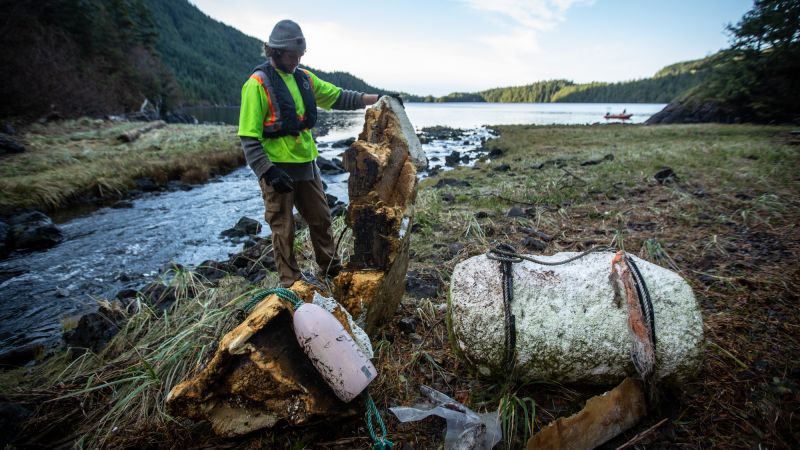
‘Terrible for marine life:’ Nanaimo group tackling marine debris across Island & B.C. coast
NANAIMO — Under a tight deadline, work continues on vital coastline cleanup across expansive areas of Vancouver Island and B.C.’s coasts.
Rugged Coast Research Society, a Nanaimo-based group, was one of five awarded funding from the province in November for marine debris removal and shoreline cleanup.
Cael Cook, the society’s business manager, said the $1.9 million in provincial funding will help them tackle over 600 kilometres of coastline. As part of the funding, work must be done by the end of February 2024.
“Certainly a lot of plastic waste, the West Coast is kind of this big trap for a lot of prevalent ocean currents. There’s several peninsulas…that are kind of these big geographic arms that stretch out and a huge catchment area in these locations.”





